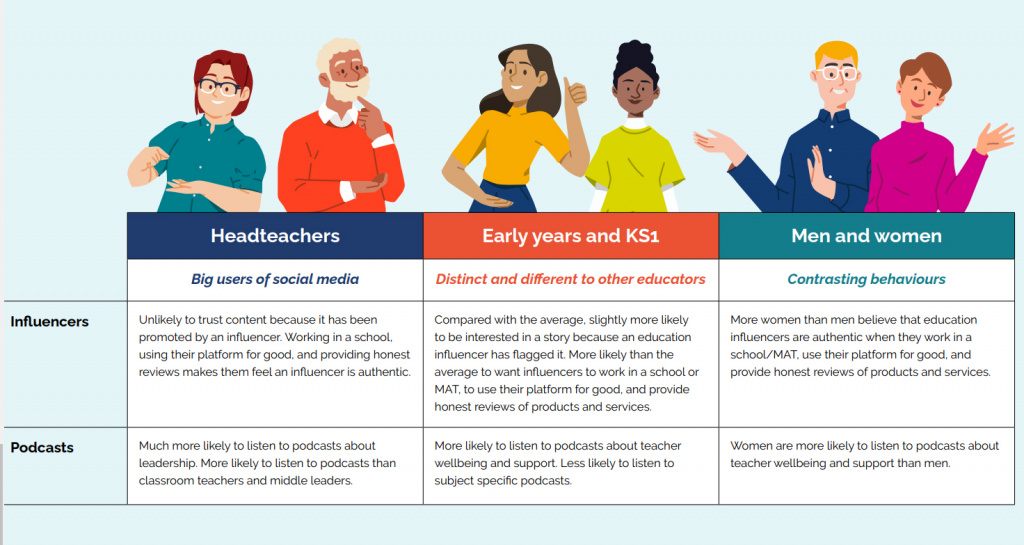
Type 'teachers + social media' into any search engine and you are faced with page after page of results. Many highlight the pitfalls: being stalked, cyber-bullying, becoming the target of hate messages, possibly from children you teach, mental health issues and burnout. Others focus on social media benefits such as improving pupil engagement and forging better relationships with parents. There has been little research on what channels teachers use and what benefits they derive. But now two pieces of research - one from the UK and one from America – provide some insights.
The American research[1] by Robin Anderson, Education Assistant Professor at North Carolina State College, explores how teachers use social media for independent study and professional development. The catalyst for this research was her own experience. As a maths teacher in a school in South Carolina, she was the only teacher who taught precalculus. Since she could not share resources or talk over issues with staff in her school, she set out to find a community on the Web. She found it a rich resource. Since teachers were using social media in their personal lives, it was not a big stretch to use it for professional purposes too.
Over time she came to realise there were several reasons why teachers would turn to social media rather than their colleagues, for example if they did not share the same philosophy or approaches to teaching and learning: 'If everybody is teaching direct instruction, and you want to do group learning, you’re not going to get much support in your building and may need to go outside of the school.'
The platforms teachers use
For several years Anderson focused on teachers' interactions on Facebook as this had proved to be a fruitful area for sharing resources and engaging in discussion. But she has found that new entrants to the profession these days are as likely to use TikTok. In her view, teachers want to learn from other teachers and since TikTok is a video-based platform, teachers can see other educators in action. However, she feels that it is also a good place for collaboration and networking, 'Sharing my idea on TikTok and having even five people be like, ‘this is a great idea,’ really validates me as a professional. TikTok is an up and coming place where I think that is happening,'
She is keen to ensure that those who turn to social media for ideas and support should maintain professional standards. She encourages teachers to use subject associations, universities and research groups as their starting point as these will have been vetted: 'Once they find voices they like on those platforms, they can follow those people to their professional blogs, the Twitter hashtags they use or their other social media accounts.'
Whereas the focus in Anderson's research is on helping teachers to finding resources and a community to support their independent professional development, a new piece of research commissioned by the Edge Foundation is aimed at marketing and communication professionals who want to find the most appropriate way to get their messages across to teachers and senior leaders in schools.